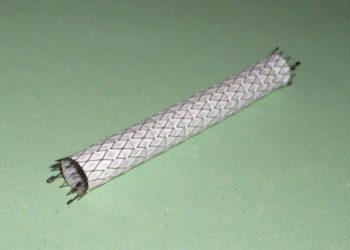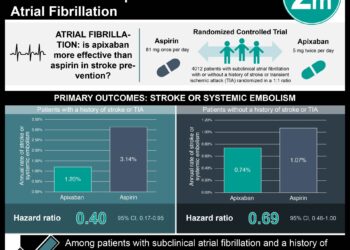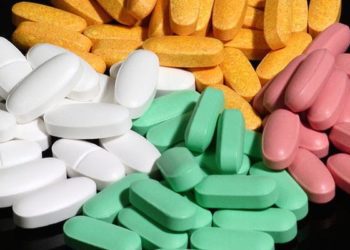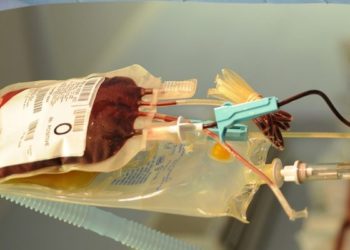2 Minute Medicine Rewind March 31- April 7th, 2014
Image: PD
In this section, we will highlight the key high-impact studies, updates, and analyses published in medicine during the past week.
Health Care–Associated Infection After Red Blood Cell Transfusion
A Systematic Review and Meta-analysis
Direct transmission of infectious agents via RBC transfusion is extremely low in developed countries; however, RBC transfusions trigger immunomodulation, which may affect overall post-transfusion infection risk. Given that health care–associated infections cause unnecessary patient harm and cost the US healthcare system $28 billion to $45 billion annually, finding additional ways to prevent such infections is a constant goal of the US Department of Health and Human Services and physicians. In this meta-analysis, 18 randomized trials (n = 7593 patients) were reviewed to compare the rate of health-care associated infections when patients were transfused based on restrictive (transfused at Hgb <7 g/dL) or liberal guidelines. In the restrictive group, 11.8% (95% CI, 7.0%-16.7%) of patients suffered from a serious infection, compared to 16.9% (95% CI, 8.9%-25.4%) in the liberal group. In addition, the number needed to treat (NNT) with restrictive strategies to prevent an infection was 38 (95% CI, 24-122), meaning that for every 1000 patients in which RBC transfusion is under consideration, 26 could potentially be spared an infection if restrictive strategies were used. Thus, when possible, restrictive RBC transfusion strategies should be used to reduce the incidence of health-care associated infections.
Stroke after Aortic Valve Surgery: Results from a Prospective Cohort
With an aging population and a reduction in mortality from other causes, calcific aortic valve stenosis (AS) is an increasingly common disorder. Approximately half of those with severe AS are referred for replacement. Stroke, a rare but potentially devastating complication of surgical aortic valve replacement, is currently poorly characterized. In this prospective cohort study, 196 patients ≥ 65 years old undergoing valve replacement for calcific AS were evaluated by neurologists pre- and post-surgically. The Society for Thoracic Surgery (STS) database previously reported a frequency of stroke of 7% in this cohort; however, in this study, strokes were detected in 17%, TIA in 2%, and in-hospital mortality was 5%. In addition, a silent infarct was identified in 59 (54%) on post-operative MRI. The clinical outcome of these silent infarcts is currently unknown but the DeNOVO study will continue to follow subjects to investigate their long-term cognitive effects.
Early Adult to Mid-Life Cardiovascular Risk Factors and Cognitive Function
Cardiovascular risk factors (CVRFs), including elevated levels of blood pressure, lipids, and fasting blood glucose (FBG), have been linked to cognitive function in mid- and late-life. In addition, exposure to CVRFs early in life is associated with adverse cardiovascular outcomes. However, no study to date has examined the influence of exposure to CVRFs early in life to cognitive functions. In this prospective study, the cognitive function of 3,381 young adults (18 to 30 years old at the start of the study) was assessed every 2-5 years for 25 years. Higher cumulative SBP, DBP, and FBG were consistently associated with worse cognition on the Substitution Test (DSST), Stroop Test, and Rey Auditory Verbal Learning Test (RAVLT), after adjusting for age, race, gender, and education. Given that SBP, DBP and FBG levels higher than those recommended by guidelines was consistently associated with worse cognitive performance on executive function, processing speed, and verbal memory, the importance addressing these issues early in life cannot be overstated.
Tadalafil for Prevention of Erectile Dysfunction
Over forty percent of men report erectile dysfunction (ED) after radiotherapy for prostate cancer, leading to a decline in psychosocial function among patients and their partners. Phosphodiesterase-5 inhibitors such as tadalafil are currently used on-demand post-treatment but their role as preventive agents remains unknown. In this randomized control trial, 242 men with intact erectile function scheduled to receive radiotherapy were randomized to tadalafil or placebo daily for 24 weeks beginning with the start of external radiotherapy or brachytherapy. There was no significant difference in the percentage of men who retained erectile function at 28-30 weeks [79% (95% CI, 70%-88%) of the placebo group vs. 74% (95% CI, 63%-85%) of the placebo group; P = .49], or at 1 year [72% (95% CI, 60%-84%) vs. 71% (95% CI, 59%-84%); P = .93]. Given that preventative tadalafil did not improve overall sexual function or satisfaction, daily tadalafil is currently not recommended for ED prevention in men undergoing radiotherapy for prostate cancer.
Aspirin in Patients Undergoing Noncardiac Surgery
Myocardial infarction is the most common complication of noncardiac surgery. Given that coronary-artery thrombus is a likely mechanism of perioperative myocardial infarction and that aspirin inhibits platelet aggregation, it seems the use of aspirin perioperatively should lower thrombus formation and its vascular complications. However, there continues to be substantial variability in the perioperative administration of aspirin in patients undergoing noncardiac surgery. In this randomized control study, 10,010 patients undergoing noncardiac surgery were randomized to receive aspirin or placebo and clonidine or placebo. At post-operative day 30, 7.0% of patients in the aspirin group compared to 7.1% in the placebo group (hazard ratio in the aspirin group, 0.99; 95% confidence interval [CI], 0.86 to 1.15; P=0.92) suffered from death or nonfatal myocardial infarction. In addition, major bleeding was more common in the aspirin group (4.6%) than in the placebo group (3.8%) (hazard ratio, 1.23; 95% CI, 1.01, to 1.49; P=0.04). Given that administration of aspirin peri-operatively did not significantly affect the rate of death and myocardial infarctions, but did increase hemorrhagic complications, its use is not recommended at this time.
© 2012-2014 2minutemedicine.com. All rights reserved. No works may be reproduced without written consent from 2minutemedicine.com. Disclaimer: We present factual information directly from peer reviewed medical journals. No post should be construed as medical advice and is not intended as such by the authors or by 2minutemedicine.com. PLEASE SEE A HEALTHCARE PROVIDER IN YOUR AREA IF YOU SEEK MEDICAL ADVICE OF ANY SORT. Content is produced in accordance with fair use copyrights solely and strictly for the purpose of teaching, news and criticism. No benefit, monetary or otherwise, is realized by any participants or the owner of this domain.







